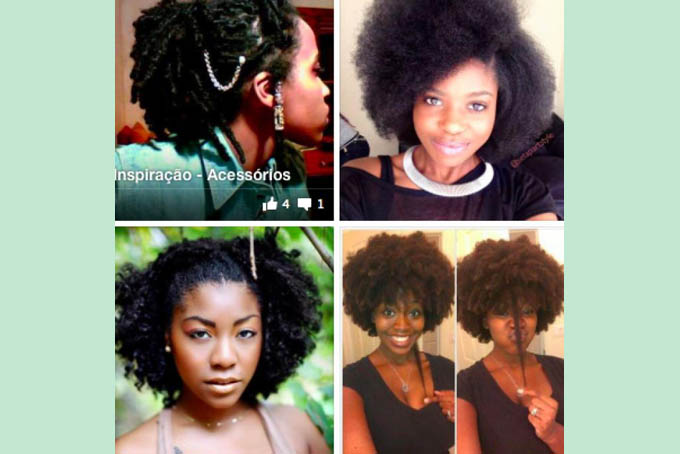
Black power is big in Brazil.
In the United States, Black power is most associated with raised fists, social revolution and political demands. When Americans think “Black power,” they generally think about the movement named and popularized in the 1960s by Southern Christian Leadership Conference founder and Black Panther Stokely Carmichael.
The concept of Black power spread through the music of James Brown and Curtis Mayfield, the trial of Angela Davis, the speeches of Malcolm X and the food drives hosted by the Panthers. The movement was able to transcend boundaries. The music, culture and pride that were emanating from African Americans also began to gain popularity with young black Brazilians.
But when Brazilians saw African Americans taking pride in their Blackness, owning it and wearing it with gusto, what they most identified with about the culture was the hair that many of the men and women wore: Afros.
Today in Brazil, when folks talk about Black power, their symbol is their hair—natural hair. For Afro-Brazilians in general but Black women especially, to wear an Afro or to wear their hair naturally is to wear Black power.
“Many women [who wear] Black power are adhering to the culture, others for political attitude, but there are also those who wear it simply because it is stylish and on point,” says Danielle Cipriane.
Crespos e Cachos (“frizz and curls”), Cipriane’s blog and Facebook page, is fast making her one of the most prominent voices in Brazil’s growing natural-hair movement. It features stories by Black Brazilian women about hair care, as well as horror stories about using chemicals and fake hair. Her Facebook page has so far received more than 200,000 likes, and Cipriane says she gets around 90 messages every day from women who want to share photos of themselves with “Black power” or are seeking advice on how to care for their hair naturally.
She is far from alone. A number of other groups have sprouted a challenge to Brazil’s preponderance of straight hair and are advocating for a quarantine on chemicals. One of the best-known is Meninas Black Power, or Afro Girls, a group founded by Elida Aquino to empower young girls to embrace their natural hair. Aquino started Meninas Black Power while she was a student studying nursing and midwifery in Rio de Janeiro. The name is “a mix of femininity and the strength that we extracted from our ancestry,” she says.

“Meninas Black Power was created to bring together Afro-Brazilian women with different backgrounds who understand that naturally curly hair is also a weapon of political positioning,” says Aquino.
Hair as political positioning or protest is nothing new for Brazil’s Black population. American Black power and Black soul came to impact much of the country’s culture in the 1970s and 1980s, despite the existence of a military dictatorship until 1985. In Rio de Janeiro’s historically poor North Zone, young people started throwing parties with protest themes straight from Oakland or Los Angeles in California or Harlem in New York, which led to the importing of Black music, literature and style from the U.S.
The message of Black pride circulated at the parties, often with translations that emphasized “the commonalities of struggle among various African-descended populations, despite linguistic, cultural and regional differences,” writes Michael G. Hanchard, a professor of Africana studies at Johns Hopkins University, in a blog for Northwestern University’s Institute for Diasporic Studies.
In an interview with The Root, Hanchard further describes some of the impact of the Black power style during its early years.
“It was seen as something threatening, Afro-Brazilians donning styles and attitudes that didn’t fit Brazil, or the White elites’ image of what a Black Brazilian should look like,” he says. “It should be clear, it wasn’t an attempt to mimic Americans. It was simply a way of expressing their own identification with Blackness in their own way.”
Black power’s popularity is beginning to challenge the Brazilian notion that ‘straight is beautiful.’
For Cipriane, who has been wearing her hair with frizz and curls for four years now and running her blog since 2012, it’s a paradigm shift. She says that Black power’s popularity is beginning to challenge the Brazilian notion that “straight is beautiful.”
“Contrary to the rules of society and straightening crazes, relaxing and stretching, many Black women are discovering the beauty, the charm and femininity of black power, with or without accessory, with or without comb cream,” she says. “The texture and volume of curly hair is conquering those who are tired of chemical alteration.”
While today’s Brazilian Black power is more a hairstyle than a political movement, it seems that the ideals that came to define Black power in its heyday, during the 1960s and 1970s—themes of Black consciousness, unity, pride and political cooperation—are in full effect.
Dion Rabouin is a freelance writer currently based in Rio de Janeiro. Follow him on Twitter.
https://www.theroot.com/articles/culture/2014/06/black_power_in_brazil_means_natural_hair.html